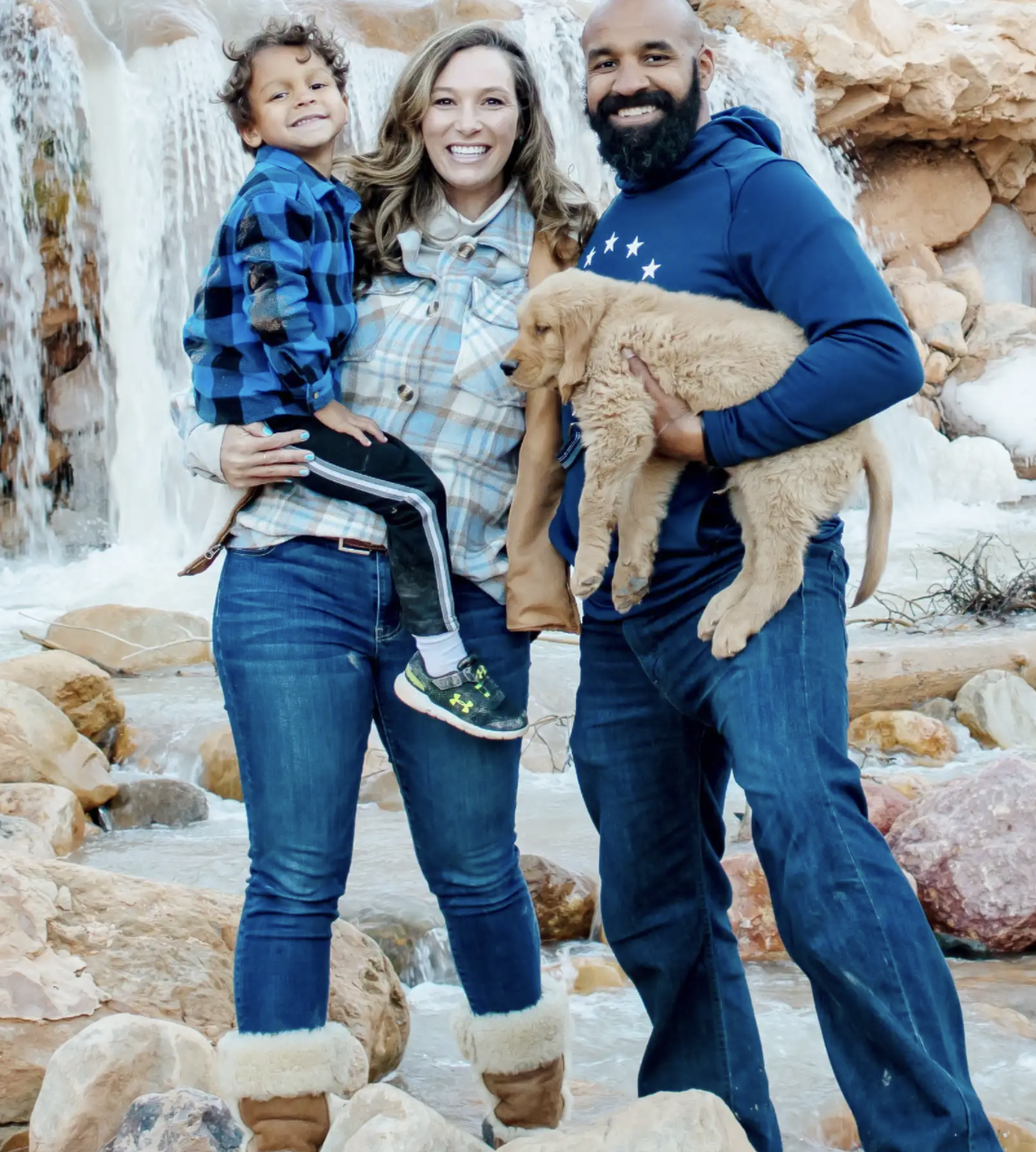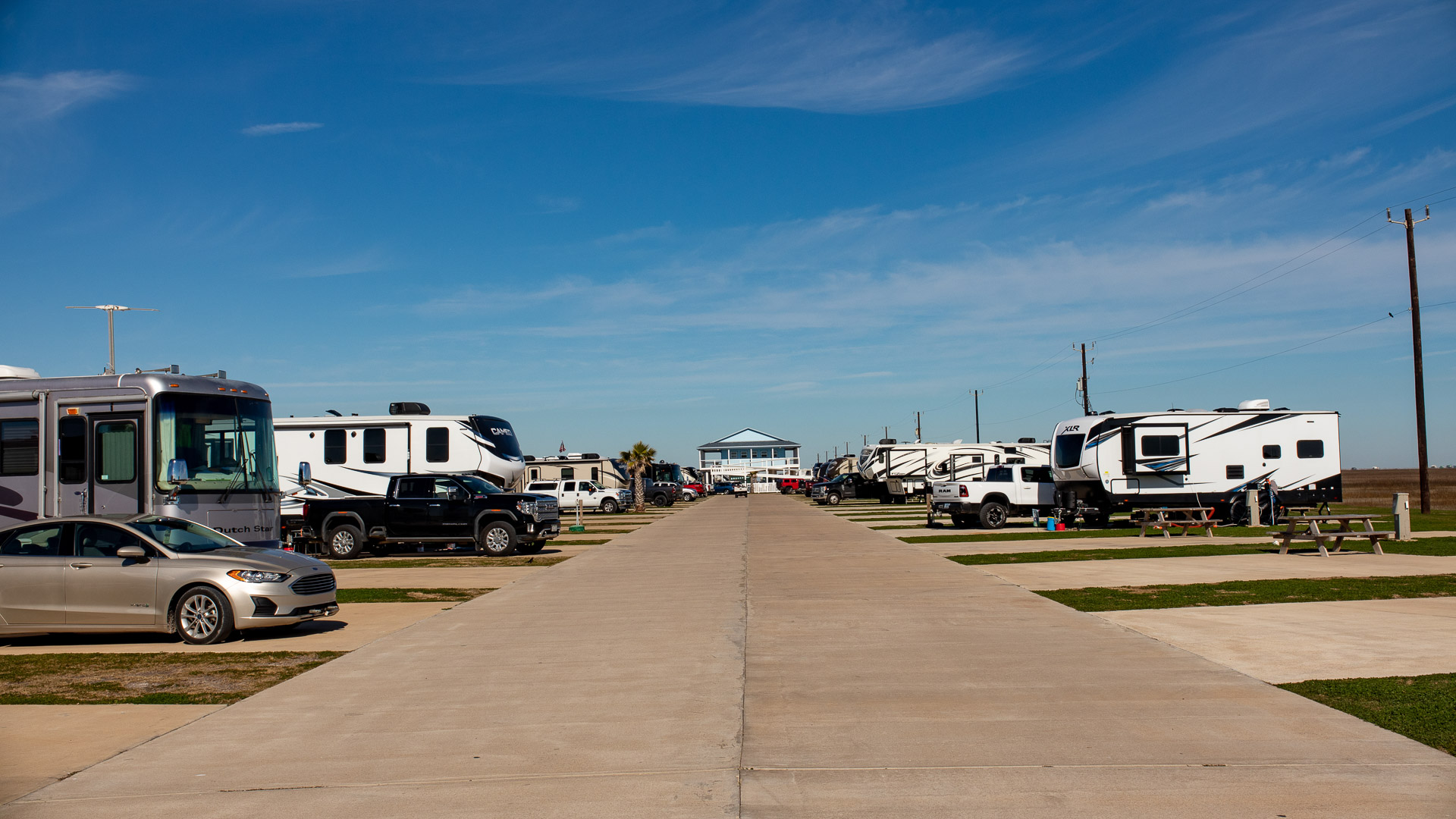
Selecting a campground for your next trip is similar to choosing a hotel or resort. You’ll find a large array of different types with or without amenities. Some can be budget friendly and others are more luxurious with rates over $150 per night. Prior to living full time on the road, we stayed at two campgrounds as a “learning experience” just before we took off. That experience certainly helped us understand some of the most common campground amenities and lingo needed for booking future stays.
If you are new to camping or new to your rig, this article will be a great resource for you when booking your next campground.
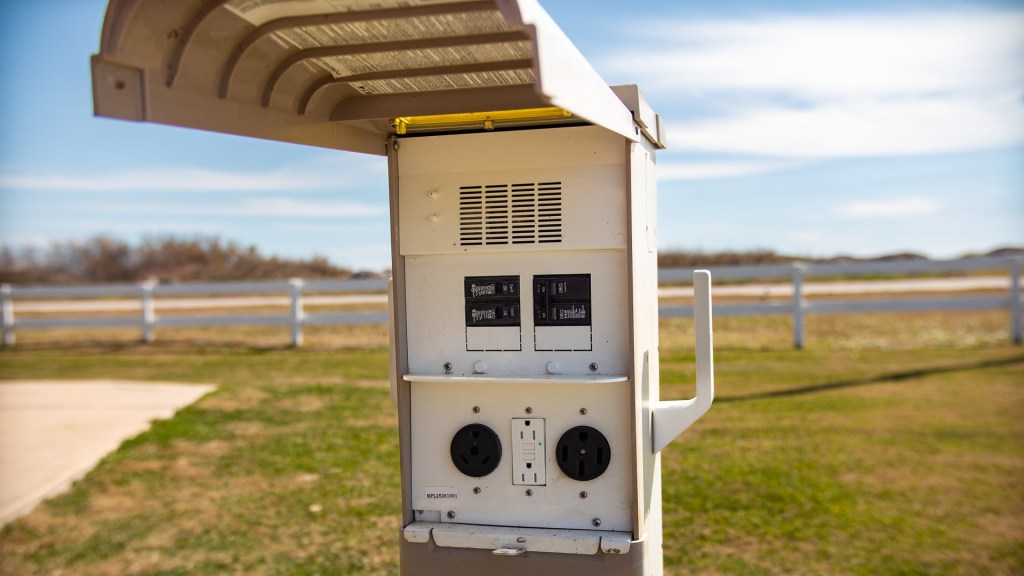
Determine what hookups you require
Typical campground hookups consist of electric, water and sewer. Within these three main utilities there are a few options. Let’s start with electric.
Most campgrounds will offer a 30-amp or 50-amp plug-in at your campsite. Occasionally, the 50-amp sites may cost more than the 30-amp. We have stayed at sites with both 30 amp and 50 amp, and while we prefer 50-amp sites, the 30-amp has worked just fine even with our AC unit. So, if there is a price difference and you’re on a budget, the 30 amp should work well for most RVs running one AC unit.
When it comes to water, most campgrounds will have water directly available for you at your site. This is not always the case when staying in a county, state or national park. Be sure to read thoroughly what these campgrounds offer. Even if they offer water, it might be in a general location to fill your tanks versus a water connection at your site.
Last but not least is a sewer connection. Ideally you would want a campground with sewer at your site or at the very least a dump station or sewer service within the campground. A few campgrounds we’ve stayed at have a dump wagon that comes around that will empty your tanks for you since they don’t have dumps at each campsite. This option hasn’t been terrible, but you may need to make sure you have the correct adapters to use this service. There are also a few (usually dispersed camping) that don’t offer any sewer services, which means you’ll have to find somewhere in town to empty your gray and black tanks.
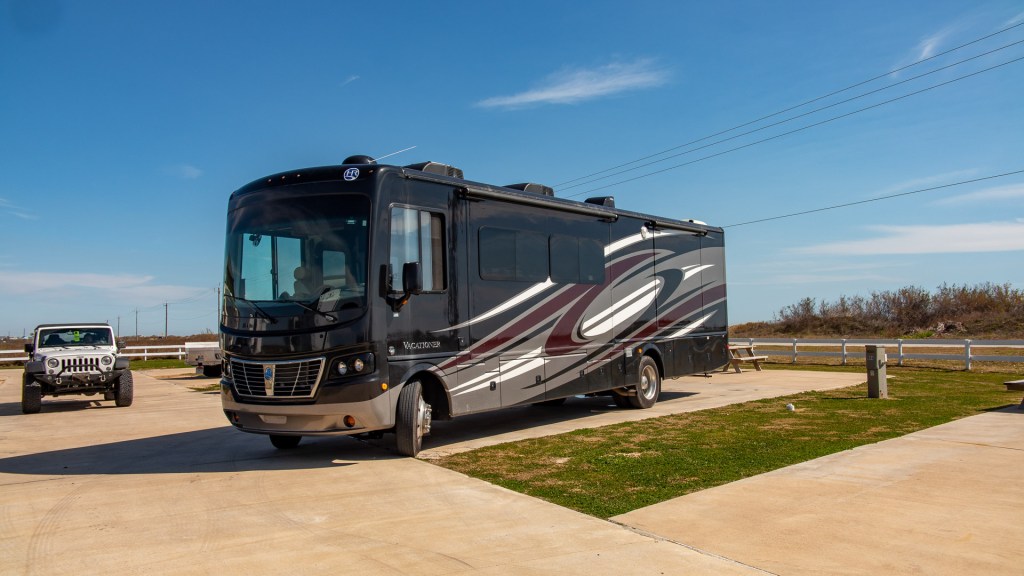
What type of site do you prefer?
Now that you have determined your desired hookups, it’s time to decide what type of campsite you prefer. The two most common types are a pull-through site or a back-in site.
A pull-through site means just that: The site is open at the front and the back, allowing you to pull your RV and, if applicable, tow vehicle right through. These types of sites are especially helpful if you are new to RVing or just stopping off for the night because they are easier to maneuver and you don’t have to unhook a towed vehicle. When we have multiple travel days in a row, we try to secure pull-through sites so we don’t have to bother with unhooking and hooking our towed vehicle upon arrival and departure.
Back-in sites, on the other hand, are only open on one side of the site and you need to back your rig into its spot. When staying at a campground for a few days, these sites are perfect. If you have a motor home, you will most likely be unhooking your tow vehicle anyway. These spots throughout campgrounds tend to be less expensive than the pull-throughs, too.
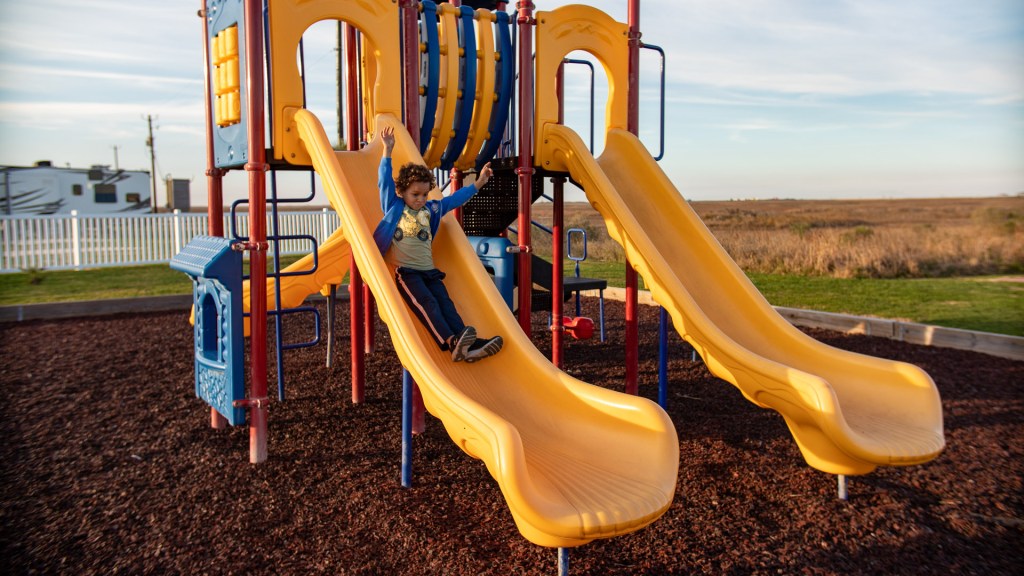
Kid-friendly accommodations
If you are traveling with kids, you will want to check the campgrounds’ policies related to children. Some campgrounds’ nightly fee only covers a certain number of people and if you have children, there could be a daily/nightly fee per child or extra person. The fee could also be for children over a certain age.
Another thing to look for is how long children are allowed to stay. This seems a little weird, right? This is rare, but we have found in both Arizona and Florida that many of the campgrounds are 55+ communities and have some interesting rules around children in their parks.
And lastly, consider what entertainment is available for your kids, like playgrounds, basketball courts, bike paths and more. Some campgrounds, like KOA, are geared for families and have tons of activities for kids. Others won’t even have the simplest of jungle gyms, so just make sure you know before you go!

Pet-friendly accommodations
If you are traveling with pets you will need to make sure the campground you book is pet friendly. And trust me, while many campgrounds are, there are some that aren’t, and you don’t want to show up only to have to turn around and leave. We have seen some campgrounds that are bare bones for our fluffy friends, meaning pets are welcome on a leash but that’s about it. Other campgrounds go out of their way to make pets comfortable with dog parks, dog swimming areas and pet bath stations. Of course, those campgrounds tend to be a bit more costly but are definitely worth it if that is what you’re looking for. Pay attention to breed restrictions, as well. Many pet-friendly campgrounds will exclude certain breeds of dog.

Solid cell signal and/or Wi-Fi
As we are traveling full time and working from the road, good Wi-Fi is a game changer. We’ve learned the hard way that even if a campground offers free Wi-Fi, it doesn’t mean it’s good, stable or fast. We usually call ahead but also travel with our own hot spot and router because being connected is a necessity that we can’t depend on the campground for. Many vacationers won’t require Wi-Fi like we do for work, but you may want to stream a show or movie. Or you may just need the ability to search online for things to do in the area. It’s always best to call the campground directly and ask about their Wi-Fi if that is something you will want while staying there. You can also go to Wi-Fi-Freespot.com to find a listing of campgrounds by state that offer free Wi-Fi. It’s not a guarantee that it will be GOOD Wi-Fi, but at least you’ll know that the campground offers it and you can inquire how strong the signal is when you call.
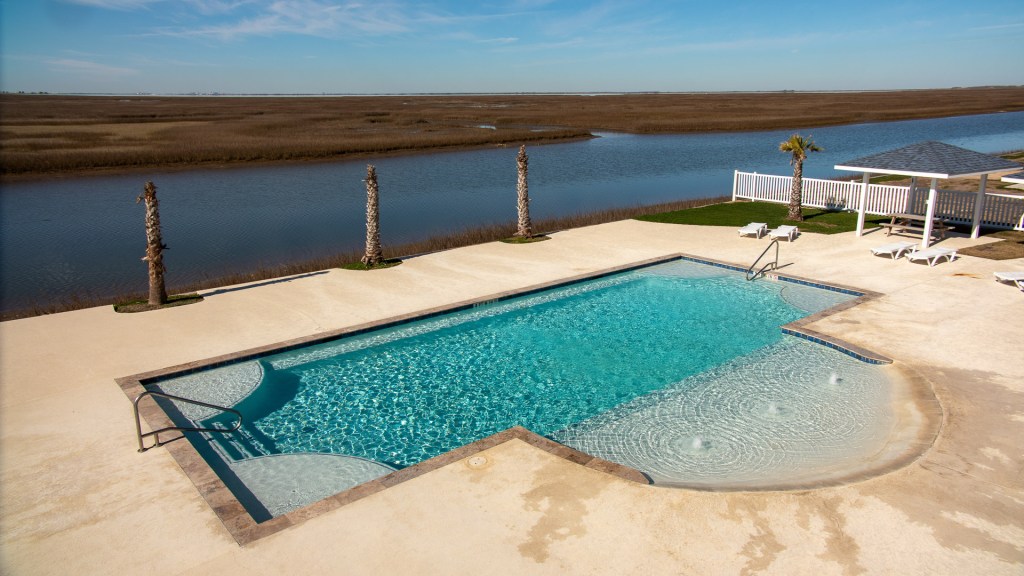
Amenities
Most campgrounds that have websites usually have an amenities tab that will highlight what that campground offers. But, if in doubt, don’t be shy about giving the campground a call to ask any specific questions you may have. Some of the most common amenities we now look for are a pool, hot tub and laundry. “Nice to have” amenities are a common area or business center, gym and camp store on-site. Some of the luxury, vacation-type campgrounds have multiple pools, lazy rivers, bars, tiki huts, kayak/paddleboard rentals, restaurants and more! The amenities you are looking for will vary depending on how you like to travel and whether you’re on vacation or an extended trip. Campgrounds with lots of amenities typically attract campers on vacation. So, if you enjoy a little more seclusion and nature, you’ll probably look for campgrounds that have fewer things to do on-site but are closer to hiking trails, good fishing and activities in nature.
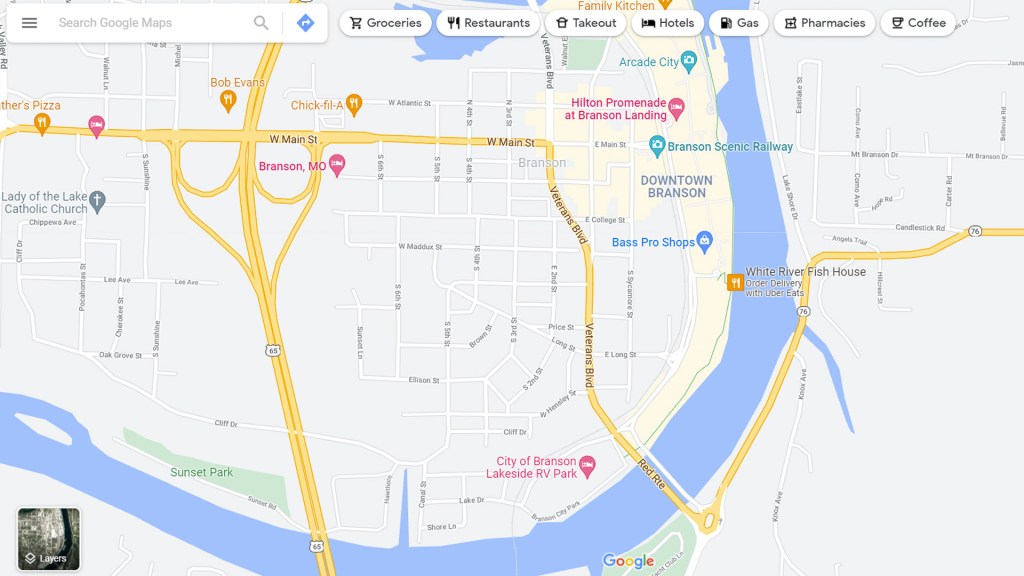
Location
The last thing to keep in mind when booking your campground is its location and proximity to things that you’ll be doing. You may want to see how close or far the grocery stores, gas stations, attractions and parks are from you. A few times we’ve stayed farther away for a more “budget-friendly” place only to find we paid more in gas driving around and didn’t venture to all the places we wanted to see because the drive was too far to make daily trips. We now prefer to pay a little more and stay closer to the places we plan to visit, but it just depends on what is important to you.
Hopefully, these tips were helpful for you and you’re ready to book your next campground stay! In addition to everything we mention above, the biggest thing we would recommend is to book as early as possible. The popularity of RVing has exploded over the past couple of years, and campgrounds are typically close to being, if not fully, booked several months out. So, make sure you get your plans set and booked as soon as possible!

